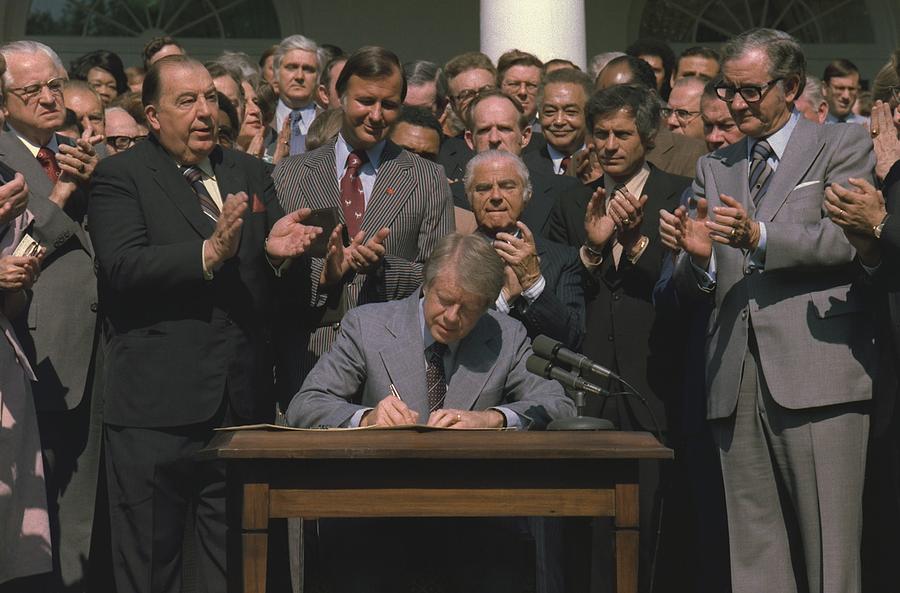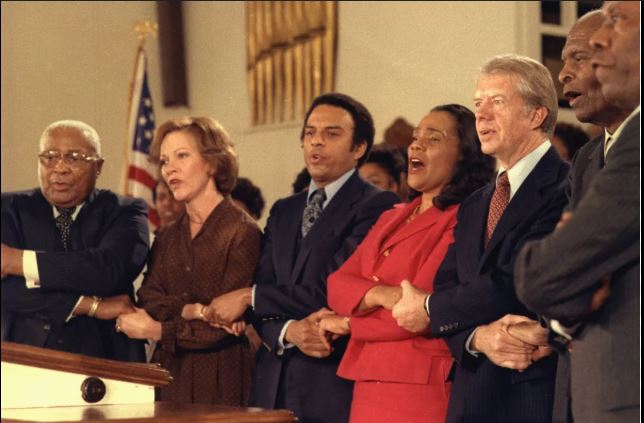
The Remarkable Life of Jimmy Carter: From Peanut Farmer to U.S. President
James Earl Carter Jr., commonly known as Jimmy Carter, served as the 39th President of the United States from 1977 to 1981. Beyond his presidency, Carter’s life story is one of dedication, resilience, and service to humanity. His journey from a humble peanut farmer to a Nobel Peace Prize laureate is both inspiring and emblematic of the American spirit.
Early Life and Education
Born on October 1, 1924, in Plains, Georgia, Jimmy Carter grew up in a rural community during the Great Depression. His father, James Earl Carter Sr., was a successful local businessman, and his mother, Lillian Gordy Carter, was a registered nurse. The values of hard work, education, and service were instilled in Carter from a young age.
Carter attended the Georgia Institute of Technology before being accepted into the United States Naval Academy in Annapolis, Maryland. Graduating in 1946, he embarked on a naval career, serving in both the Atlantic and Pacific fleets and specializing in submarine warfare.
A Shift to Politics
After leaving the Navy in 1953, Carter returned to Georgia to manage the family peanut business following his father’s death. His success in business soon led him to local politics. In 1962, Carter was elected to the Georgia State Senate, where he served two terms. His political career continued to ascend when he was elected as the Governor of Georgia in 1970.
As governor,Jimmy Carter implemented several progressive policies, including reforms in education, healthcare, and civil rights. Notably, he worked to eliminate racial segregation and improve the state’s education system, gaining national attention for his forward-thinking policies. Opposing racial segregation, Carter supported the growing civil rights movement, and became an activist within the Democratic Party. Carter served in the Georgia State Senate from 1963 to 1967 and then as Governor of Georgia from 1971 to 1975.
Presidency
In 1976, Jimmy Carter launched a successful campaign for the presidency, running as an outsider who promised honesty and integrity in the wake of the Watergate scandal. His presidency was marked by significant achievements and challenges. Domestically, Fighting Civil Rights for everyone…Carter focused on energy policy, environmental conservation, and governmental reform. Internationally, his administration is best known for brokering the Camp David Accords, which led to a peace treaty between Egypt and Israel.
However, his presidency faced difficulties, including economic struggles characterized by high inflation and unemployment, as well as the Iran hostage crisis. These challenges contributed to his defeat in the 1980 presidential election to Ronald Reagan.
Post-Presidency and Humanitarian Work
Despite leaving office, Carter’s commitment to public service never wavered. He became a prolific author, writing numerous books on various subjects, including politics, faith, and human rights. In 1982, he founded the Carter Center, a non-profit organization dedicated to advancing human rights and alleviating human suffering. The Center’s work has led to significant progress in global health, democracy, and conflict resolution.
Carter’s post-presidential efforts earned him the Nobel Peace Prize in 2002, recognizing his decades of tireless work promoting peace and humanitarian causes around the world.
Conclusion
Jimmy Carter’s life is a testament to the power of commitment and service. From his early days in rural Georgia to his influential role on the global stage, Carter has consistently demonstrated a deep commitment to improving the world. His legacy as a champion for peace, democracy, and human rights continues to inspire generations, solidifying his place as a revered figure in American and world history.





